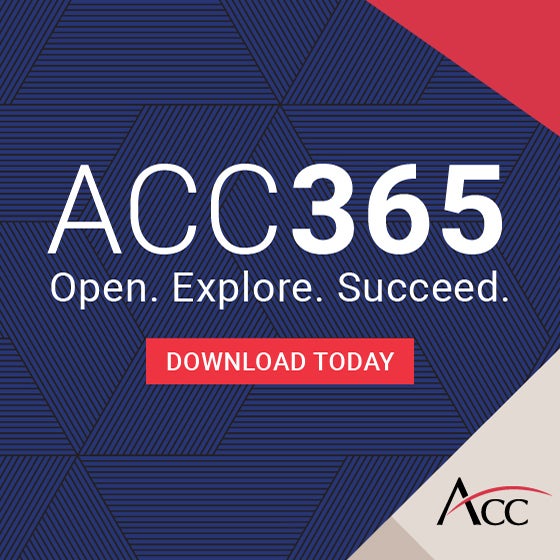With a career spanning more than 30 years, mostly as in-house counsel for Westpac, Justin Moses is giving back to the legal fraternity by mentoring up-and-coming in-house counsel. In the four years that Moses has been part of the Australian Corporate Counsel’s Future Leaders Mentoring Program, he has exceeded all expectations in terms of his commitment, dedication, and generosity of time.
So it came as no surprise to his peers when he was named ‘Mentor of the Year’ last November at the 25th ACC In-House Legal National Conference. Now working for the Australian Indigenous Mentoring Experience, here, Moses shares some lessons he has learned from his career about:
- going beyond your legal brief;
- increasing your influence within your organisation; and
- taking ownership of your workload.
1. Go Beyond Your Legal Brief to Expand Your Opportunities
Moses had his first taste of mentoring when he started working at Westpac in 1987. He was among the first members of the legal team to be legally qualified because until then, the team had consisted of very experienced, knowledgeable bankers. Reporting into one such banker, Moses benefited from his manager’s deep industry understanding and penchant for coaching.
“He was really skilled at teaching us to think expansively on the issues we were addressing; not to be too narrow in our focus,” he said. “It helped us to understand that there were other implications we should be thinking about.” It also taught Moses that, in order to add real value, he needed to not only to go beyond the original brief, but to also develop his own deep understanding of the organisation.
“When I was working at Westpac, I was dismayed by how many lawyers never read the annual report, never went to the annual general meeting or the results briefings,” Moses said.
“There is so much satisfaction that comes from being better informed about your organisation, its broader remit and the industry it operates in, because that can create great opportunities for exploring other avenues of interest, building new relationships and adding value in other ways.”
In other words, deepening your understanding of the business in turn boosts your career prospects.
“Lawyers tend to exclude themselves from lots of opportunities offered by the business because they think it’s not intended for lawyers. But it is intended for employees. So don’t confine yourself to a really narrow label and not participate just because you have a specialist capability.”
This includes:
- taking a broader interest in what is happening in the organisation;
- understanding the business’ strategic and commercial priorities; and
- building relationships across the business.
2. Increase Your Influence Within the Organisation by Broadening Your Remit
Another benefit of broadening your remit is that it increases your influence within the organisation. “When all is said and done, one of the biggest challenges GCs face is their lack of influence, from the standpoint that their part of the business doesn’t contribute revenue,” he said. This makes it difficult to gain traction on projects that would streamline legal operations.
“Yes, you can influence in terms of identifying major risk to the business, but when it comes to asking for more money to implement, say, a contract management system so we can be across important contractual milestones, the business shrugs and says ‘get on the waiting list’,” he said.
So what can General Counsel do to increase their influence?
“It sounds a bit trite to say it, because it’s easy to say and harder to do,” Moses says. “But it’s to demonstrate that value is being added.”
Moses outlines two ways to do this, including to:
- demonstrate that the in-house team offers a multi-faceted, multidisciplinary approach on such things as regulatory affairs, stakeholder management, communications and risk or compliance management; and/or
- to take a risk/reward approach, creating a link between the support the legal team provides and a quantitative measure, such as savings on fines, litigation costs, settlements, lost cases, and so forth.
Moses references the Dupont legal team as an example, which he says became famous for its debt recovery program. Combing through major supplier contracts, Dupont’s team began rigorously enforcing rebates, resulting in a significant amount of money coming back into the business. They were able to demonstrate to management that the investment in contract management processes would result in major savings for the business.
3. Take Ownership of the Opportunities to Improve Your Workflow - and Workload
Identifying opportunities for improvement obviously takes time, and in-house counsel need to be willing to change their mindset, Moses says. “It’s not about what you do, but how you do it. You have to be prepared to invest the effort in thinking about that.”
Starting with documenting your workload. “In-house lawyers moan at the prospect of recording their time or activity, but what better way is there, even over a short period, to capture what you are being expected to do and how many masters you are serving?”
This in turn leads to opportunities to do some self-help, to divest in-house lawyers of non-legal work they invariably do because they are efficient and helpful.
In addition to streamlining legal operations and demonstrating added value to the business, improving workflow reduces the risk of burn-out.
“It’s not fashionable to talk about work-life balance, but work-life flexibility is critical,” Moses said.
“This might sound a bit controversial, but I think lawyers need to take more responsibility for reducing their workload. Too many lawyers say they are too busy to find answers and expect their employers to deliver solutions to challenges in this area.
“They need to take more ownership, and say ‘this is too much, this is creating challenges for me, we need to find another way.”
Moses recommends developing a support network, whether it is in your organisation, your team, or your social life, that you can draw on to help you balance the competing pressures you are faced with. “The flip-side is being open to providing other people with that sort of support, which creates communities that help each other,” Moses said.
Another opportunity is outsourcing work. Moses suggests that in-house teams look for alternative legal service providers or private practitioners that:
- have an energy and passion for what they are doing, and for what is different about what they are doing;
- are focused on providing clients with an immediate benefit, through increased speed, reduced cost and an ability to automate processes; and
- put in the effort to really understand the business’ priorities and even identify what could be a blind spot for the client.
Justin Moses’ 3 Key Takeaways
- Go beyond your legal brief, and develop a deep understanding of your organisation. “Be intensely curious about the environment you are operating in; seek opportunities to enrich your experience as an employee.”
- Increase your influence by broadening your remit. “Take advantage of what the organisation offers beyond just turning up and being paid to do your job.”
- Take ownership of improving your workflow - and your workload. “It’s about saying: ‘I can change the way I do my job to allow me to focus on the things that are really important’,” Moses said.
Laini Bennett is Head of Content at LegalVision. She is responsible for LegalVision’s freely available database of articles and publications. LegalVision is a market disruptor in the commercial legal services industry and provides a range of legal solutions specifically directed at large corporates, fast-growing businesses and enterprise clients that have a higher volume of legal needs. The firm was named the 'Fastest Growing Law Firm in the Asia-Pacific' by the Financial Times.

